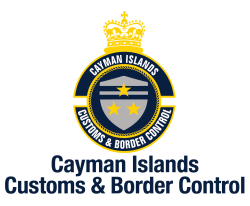News
New Vehicle Importation Restrictions Introduced

Cabinet on 25 April 2023, approved the Customs and Border Control (Prohibited Goods) (Amendment) Order, 2023 which will see new import restrictions on some categories of vehicles older than seven years.
|
Model - Year |
Import Allowed |
|
2023 |
Yes |
|
2022 |
Yes |
|
2021 |
Yes |
|
2020 |
Yes |
|
2019 |
Yes |
|
2018 |
Yes |
|
2017 |
Yes |
|
2016 |
Yes |
|
2015+* |
No |
Table shows vehicle import restriction for calendar year 2023
The restriction on the importation of older vehicles is the first in a series of actions being taken by the Government to help improve road safety and manage traffic congestion and its negative effects on the quality of life for motorists during peak commute times.
Data from the Vehicle Imports Summary from 2010-2022 provides some insights into the role that vehicles themselves have played in the congestion issue over the last decade. The total number of cars imported to the Cayman Islands over 10 years from 2012-2022 is 39,267 with an annual average of 3,926 cars imported. However, during the last 5 years from 2018 to 2022, the total number of cars imported is 23,953 with an annual average of 4,790 cars imported. The average age of vehicles being imported has also increased as shown in the table below.
|
|
2020 |
2021 |
2022 |
|||
|
Years Grouping |
Total |
% of Total Vehicles |
Total |
% of Total Vehicles |
Total |
% of Total Vehicles |
|
5-10 Years |
972.0 |
43% |
1,065.0 |
38% |
509.0 |
22% |
|
11-20 Years |
721.0 |
32% |
1,203.0 |
42% |
1,496.0 |
63% |
“The new restriction to limit the age of cars that can be imported will help slow down the number of older cars entering our islands. It is the first in a series of actions the Government is taking to improve road safety and reduce traffic congestion,” said Premier and Minister for Sustainability and Climate Resiliency, Hon. Wayne Panton MP, JP.
“In the five years from 2018-2022, there were 23,953 vehicles imported into the country. As you can see from the table, the most significant change in vehicle imports over the last three years is the percentage of cars being imported in the 11-20-year-old category. Importation of this age group of vehicles nearly doubled from 32% in 2020 to 63% in 2022. These older vehicles are often cheaper to purchase but they are harder to maintain and will drive higher demand for replacement vehicles; these older vehicles end up abandoned and left for Government to dispose of,” he added.
"This solution is aimed at reducing traffic congestion and at increasing the fuel efficiency, emission standards, and overall safety of vehicles on our roads. The increase in the number of older cars also increases dangerous emissions as older vehicles are less fuel-efficient and more likely to cause air pollution,” Premier Panton concluded.
*There will be exemptions for “special vehicles” to allow for agricultural work, construction, maintenance or engineering vehicles older than 8 years to be imported noting the special conditions of these markets in acquiring vehicles. Additionally classic and antique vehicles will be allowed importation, and there is no change to the existing conditions imposed for import of Omnibuses.
The Order comes into force on 1 May 2023.
Vehicles purchase before the commencement of this Order for importing vehicles over eight years old, even if the vehicles have not yet arrived on-island, will not be affected by the Order. Importers will be asked to provide the required proof of these transactions, as specified in the Order, to Customs and Border Control.
The Minister for Border Control and Labour, Hon. Dwayne Seymour, assured that addressing the problem of unrestricted vehicle importation is a significant step towards securing a viable, long-lasting solution to Cayman’s traffic problem: “The enforcement of the new Customs and Border Control (Prohibited Goods) (Amendment) Order, 2023 is not intended to jeopardise residents from purchasing necessary vehicles, but to help restore the quality of life on our roads that Caymanians once enjoyed and now demand. I am proud of the hard work of CBC and our policy makers for helping the country begin to find a solution for the on-going traffic crisis.”
The Minister also noted that the Economics and Statistics Office’s Fall 2022 Labour Force Survey Report indicates an overall population growth from 71,105 in 2021 to 81,546, representing an increase of 10,441 or 14.7% increase between 2021 and 2022. “This significant surge in population further compounds the issue of congestion on the roads and establishes its likelihood to continue to be a growing problem,” he opined.
As an example of vehicular congestion, Minister Seymour highlighted a five-day survey in February 2023 by the Department of Public Safety Communications that revealed the average movement from 6 am-10 am during the five days monitored of 7,990 vehicles westbound (towards George Town) on Shamrock Road and 2,948 southbound from West Bay during peak times.
Minister Seymour also noted that regional countries that currently have restrictions for imports based on the age of vehicles include Jamaica, Barbados, Dominica, Dominican Republic, Trinidad and Tobago, and St. Kitts and Nevis.
The Director for CBC, Mr. Charles Clifford, advised that, “CBC will rigorously enforce the Customs and Border Control (Prohibited Goods) (Amendment) Order, 2023. To be clear, a prohibited commodity cannot, under any circumstances, be lawfully imported into the Cayman Islands. Importers and their agents must therefore exercise the required due diligence to avoid the consequences of attempting to import a prohibited commodity.”












